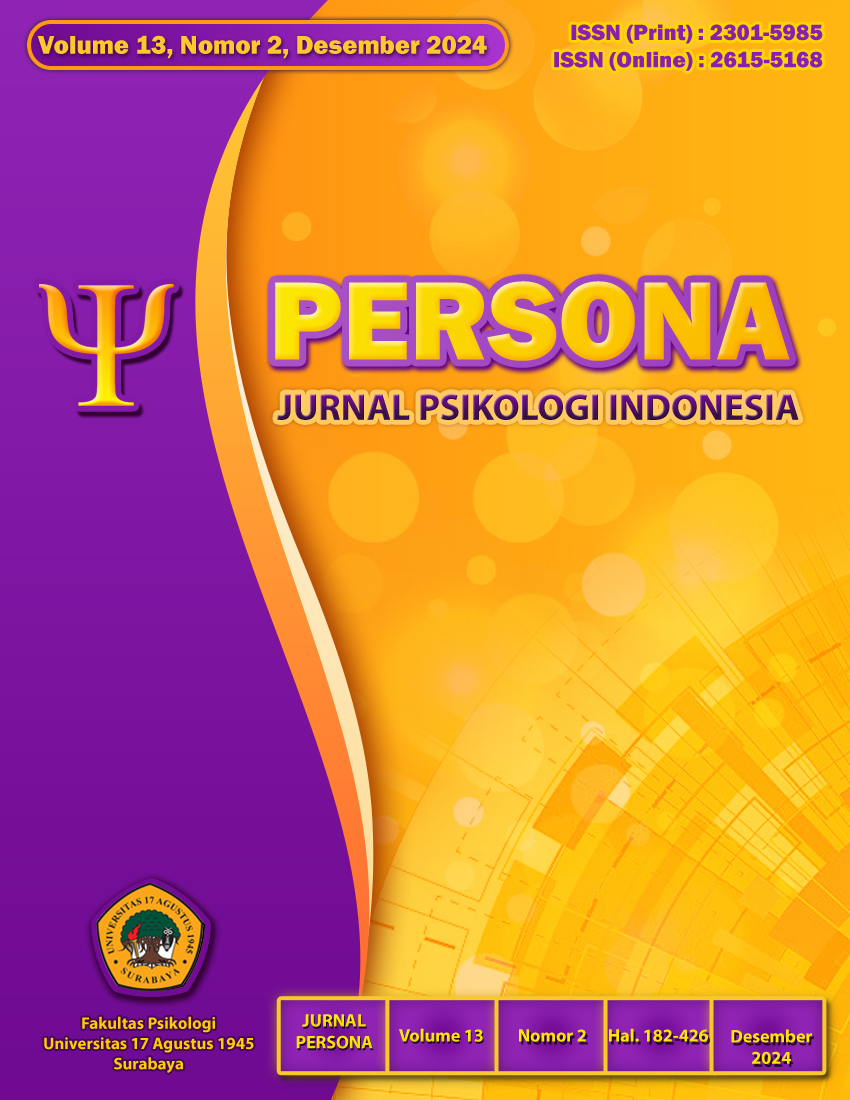Model kompetensi sosial mahasiswa calon guru: Studi dengan penerapan Structural Equation Modelling
Social competence model of prospective teacher students: A study using Structural Equation Modeling
DOI:
https://doi.org/10.30996/persona.v13i2.12131Keywords:
Internal Locus of Control, Prospective Teacher Students, Social Competence Model, Parenting Patterns, Emotional RegulationAbstract
Social competence is a life skill that prospective teacher students must possess. Unfortunately, many prospective teacher students have low social competence. This study aims to test the social competence model of prospective teacher students in terms of authoritative parenting patterns and internal locus of control mediated by emotional regulation. The research participants were students of the Faculty of Teacher Training and Education recruited using purposive sampling techniques (n = 350). The research instruments consisted of the Social Competence in High Education Questionnaire (α=0.906), Parenting Style Dimension Questionnaire (α=0.884), Internal Locus of Control scale (α=0.933), and Emotion Regulation Questionnaire (α=0.874). All research instruments have been validated using Confirmatory Factor Analysis (CFA). The research data were analyzed using Structural Equation Modeling (SEM). The study results showed that empirical data supported the proposed research model. The implications of this study require Universities to provide students with certain strategies to develop social competence, especially in the Faculty of Education.
Downloads
Downloads
Published
Issue
Section
License
The author who will publish the manuscript at Persona: Jurnal Psikologi Indonesia, agree to the following terms:
1. Authors retain copyright and grant the journal right of first publication with the work simultaneously licensed under a Creative Commons Attribution ShareAlike License that allows others to share the work with an acknowledgment of the work's authorship and initial publication in this journal.
2. Authors are able to enter into separate, additional contractual arrangements for the non-exclusive distribution of the journal's published version of the work (e.g., post it to an institutional repository or publish it in a book), with an acknowledgment of its initial publication in this journal.
3. Authors are permitted and encouraged to post their work online (e.g., in institutional repositories, pre-prints sites or on their website) prior to and during the submission process, as it can lead to productive exchanges, as well as earlier and greater dissemination of published work






